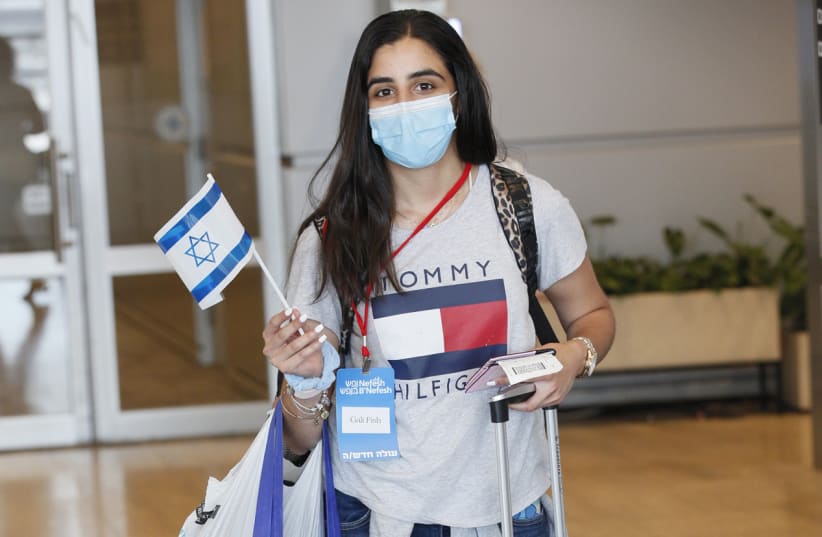In the wake of the High Holy Days in Israel, the country is still facing total lockdown due to the extremely high number of coronavirus cases.
Once again, only a few months after the first lockdown, the country is completely shut down. Not only could families not gather to share these days, but travel has also been suspended for anyone who bought their plane ticket after September 18, no matter what their nationality was.
No more ways of leaving Israel to reunite with family; no more ways, for more than seven months now, to bring family to Israel.
Here is the situation of the olim (new immigrants) in Israel, in 2020, during the coronavirus era.In other words, the new immigrants who came to the Holy Land out of vocation and passion for Israel are facing an extremely difficult choice: their Zionist conviction and their desire to live in Israel on the one hand, and the extremely difficult "not seeing my family living abroad" situation, on the other one.
Realizing that the political and health chaos currently reigning in Israel had made the subject of olim a "non-subject", Shanna Orlik, Sarah Barenbaum, Rebecca Bern and Minna Swindon launched on Facebook the apolitical movement "Reunite_our_Families", with the hashtag #Reunite_our_Families, in order to mobilize olim who are facing the same distress and loneliness as they are.
Living in Israel for 5 to 11 years, and seeing that their "new immigrant" condition in Israel is not about to improve, they decided to take action and put pressure on the government to allow their family to visit them in Israel, legally.
Since March, any person who does not hold Israeli citizenship is not allowed to enter Israeli territory, with the exception of student visas and three specific situations for close relatives: birth, marriage or death. Only in these specific configurations are foreign nationals authorized to enter Israel. And this is not without difficulty, given the length of the administrative procedures it requires, including quarantine.
SO THEY contacted Gaby Lasky, an Israeli human rights lawyer who recently succeeded in passing a law so that binational couples, where one is Israeli and the other is not, could benefit from family reunification and enter Israel during the corona period. The young women hoped to be able to count on this legal precedent to pass a similar law concerning the families of olim.
"Being a new immigrant to Israel is difficult enough in itself – we do not need to be put to the test of loneliness and despair far from our family, without the possibility that they can visit us," Orlik explained at the initiation of the project.
Welcomed on social networks with varying reactions, some see this project as a way of olim to assert their right to family reunification, while others consider it to be a whim.
"For new immigrants, Israel can be a difficult country sometimes," she said. "We left everything behind, and we came here to build it all from scratch. Understanding the laws and new regulations during the corona, can be complex, especially when you don't know whom you can rely on when you are alone without family and acquaintances."
"The precariousness of the olim is growing from week to week, and the government does not seem to worry about it."
"Our situation is very different from Israelis who were born here. Once the confinement is over, they will be able to return to their families easily, while for us olim, the only way is to fly. Not everyone can afford it, financially speaking, or because our job doesn't allow us to work remotely," Orlik said. "And don't forget that we will have two weeks of isolation upon our return."
Last week, MK Yorai Lahav Hertzanu of Yesh Atid-Telem called on Interior Minister Arye Deri and Aliyah and Integration Minister Pnina Tamano-Shata to allow new immigrants to leave the country in order to see close family, and to allow their family members into the country.
“This is especially important for new immigrants, who have chosen to leave their country of origin and make their homes here,” Lahav Hertzanu said.
"We are not asking for any preferential treatment. We only want to have access to the family reunification which is a human right, especially in a time as difficult as this one," Orlik said.
"Students have the right to enter the territory without being Israeli. They only need a student visa, which is allowed by the government."
"Why not our families? What is the difference?" she asked in conclusion.
